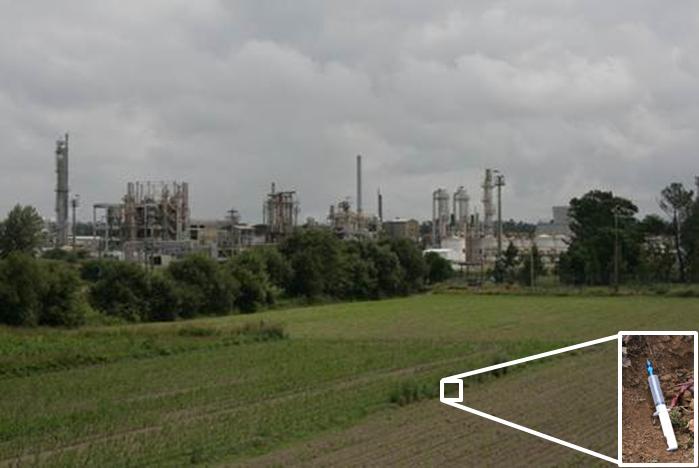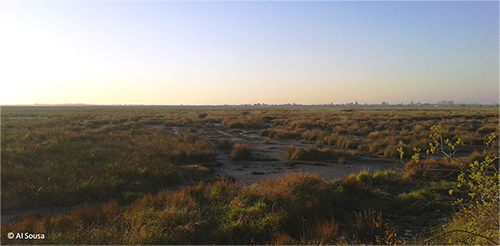Projets de recherche
104 résultats
Porteur: Nuno Durães
Disciplines:
GeologieHydrologieMots clés:
Pore watersOrganic and Inorganic ContaminationAgriculture PracticesRésumé:

Pore waters are very specific solutions, generally with high concentrations due to the greater residence time than percolation waters, which promote a high water-soil interaction. For this reason these solutions are the transference medium for excellence of inorganic and organic compounds between soils and plants. In this sense, the study of pore waters can give valuable information about the mobility and bioavailabitity of contaminants for plants.
In this project we propose to study the influence of the agriculture practices in the contaminants mobilization, focusing in pilot contaminated areas of Estarreja, and using pore waters as a medium to study these processes, hoping to contribute with valuable information to improve de quality of agriculture practices in the reduction of contaminant’s exposure.
Participants:
Anabela Cachada, Carla Patinha, Ana Cláudia Dias, Armando da Costa DuartePorteur: Ana Sousa
Disciplines:
BiologieBotaniqueEcologieMots clés:
Baixo Vouga LagunarSalt marsh plantsCarbon storageSea level riseEcosystem servicesRésumé:
 Salt marshes are amongst the most productive ecosystems in the world and provide important ecosystem services, namely regulation and maintenance of coastal areas. Acting as coastal filters, salt marshes also have important roles in carbon (C) storage, thus contributing to climate regulation at local and global levels.
Salt marshes are amongst the most productive ecosystems in the world and provide important ecosystem services, namely regulation and maintenance of coastal areas. Acting as coastal filters, salt marshes also have important roles in carbon (C) storage, thus contributing to climate regulation at local and global levels.
Nevertheless, these habitats have been converted or degraded due to many drivers and pressures, and its sustainability and C storage capacity might be threatened by climate change effects. As a result of global climate change and sea level rise, Baixo Vouga Lagunar (BVL) salt marshes, included in Ria de Aveiro (Portugal), are likely to be affected and, consequently, the services they provide, namely C storage.
The main goals in this project are to analyse the BVL salt marshes phytosociological trend and to assess their C storage capacity, as an ecosystem service.
Participants:
Ana Sousa, Ana Lillebø, Rosa Pinho, Olga Ameixa, Fernando LeãoPorteur: Ana Maria Pissarra Coelho Gil
Porteur: Ana Rita Moreira de Carvalho Maurício
Porteur: Yves Noack
Coporteurs: REIS Amélia
Disciplines:
Eco-epidemiologieEcologie de la santeMedecineSante publiqueToxicologieMots clés:
ingestionenfantcontaminantbio-accessibilitégénotoxicitéRésumé:
L'ingestion est une voie majeure d'exposition aux contaminants chez les enfants en bas-age. Le projet se propose de faire une étude des caractéristiques physico-chimiques, de la bio-accessibilité et de la génotoxicité des particules ingérées par les enfants en intérieur et en extérieur dans des environnements qu'ils fréquentent régulièrement (crèches, écoles maternelles, aires de jeux). Les sites de prélèvements seront choisis, sur les territoires des trois OHM BMP, Estarreja et Litmed, en fonction de leur environnent et exposition. L'importance de la spéciation des contaminants sur leur bio-accessibilité et ses conséquences sur la santé pourra être mise en évidence.
